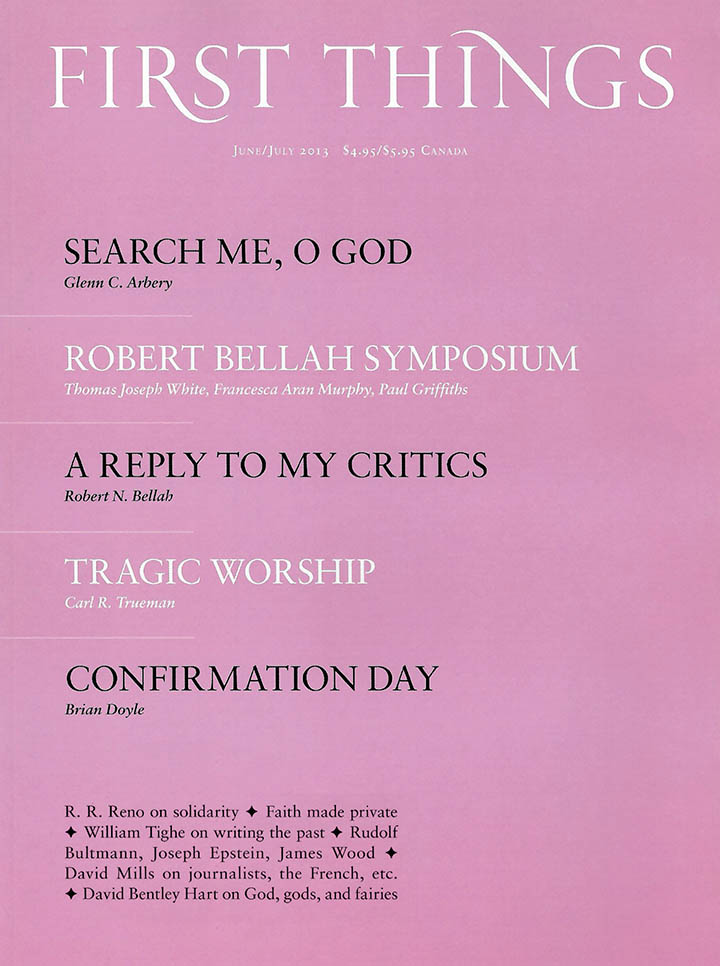In December 2012, more than twenty scholars gathered in New York for a seminar to discuss the eminent sociologist Robert Bellah’s Religion in Human Evolution. A big, remarkable book, its two main arguments are for the most part congenial to First Things readers. First, biological evolution shows that human development involves more than genetic mutation and the struggle for survival. Second, religion plays a central role in human culture and its development.
Congenial, yes, and Francesca Murphy’s essay develops some implications. But Bellah’s scholarly ambition was explosively controversial as well. Two fundamental issues came to the fore. Before the seminar, I hadn’t fully realized how thoroughly the First Things crowd is committed to theology as the queen of the sciences. Many of the participants felt that Bellah tacitly contests this sovereignty. Thus the essay by Thomas Joseph White, which translates Bellah’s ambitious project into theological categories. Thus the essay by Paul Griffiths, which reframes in a provocative way Tertullian’s question: What has Athens to do with Jerusalem?
The second issue, latent in Griffiths’ essay, involves pluralism. At a crucial juncture on the second day of the seminar, Bellah asked a probing question: Can one believe in more than one religion? A number of participants gave measured, nuanced responses that added up to “no.” Bellah thought this answer over-determined by our theological monotheism. Can’t we in fact entertain and enter into alternative accounts of ultimate reality?
At that moment I saw that Bellah and his book speak for a noble ideal of the intellectual and spiritual life that revolves around participatory, empathetic understanding. It’s an ideal that animates the modern university at its best. As for those gathered for the seminar? For the most part, they (and I include myself) expressed in their own ways the ideal of consummation. Love’s knowledge is in many ways blind, because it sees all things in the beloved. I cannot speak for the others, but for me that was a precious moment of insight, one that testifies to the fruitfulness of Robert Bellah’s ambitious project—and to the generosity of his commitment to engaging his often critical theological readers.
We’re grateful to the Research and Innovation in Human Affairs program of the Historical Society for the funding that made the seminar and the publication of these essays possible.
The Testament of Ann Lee Shakes with Conviction
The Shaker name looms large in America’s material history. The Metropolitan Museum of Art hosts an entire…
Dilbert’s Wager
Niall Ferguson recently discussed his conversion to Christianity. He expressed hope for a Christian revival, which he…
The Real Significance of Moltbook
Elon Musk thinks we may be watching the beginning of the singularity. OpenAI and Tesla AI designer…



